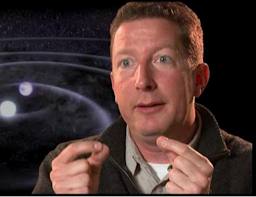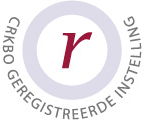Paul Groot
Government must learn to delegate
Professor Paul Groot is a full professor and head of the astrophysics department at the Radboud University Nijmegen, The Netherlands. He is the chair to the Netherlands Research school of Astronomy (NOVA) and a winner of the EU Descartes prize.
 What I enjoy most about my work is being able to do professionally what is actually my passion: learning about the workings of the universe. Curiosity is a great personal drive. Another aspect of my work that I enjoy is the diversity of tasks: I’m a manager, researcher, teacher, project leader, networker, communicator, etc.
What I enjoy most about my work is being able to do professionally what is actually my passion: learning about the workings of the universe. Curiosity is a great personal drive. Another aspect of my work that I enjoy is the diversity of tasks: I’m a manager, researcher, teacher, project leader, networker, communicator, etc.
Simultaneously, these are the aspects of my work that I used to struggle with – and sometimes still do- on a personal level. I guess every professor is ambitious and self-critical, so trying to give every task appropriate attention demands concentration and focus. The pressure of accountability, usefulness, and external finances sometimes distract from devoting sufficient attention to the heart of my work and passion.
The increased cuts in direct government funding of universities and the shift to external funding through institutions like NWO or ERC or companies creates a push towards entrepreneurship rather than scientific curiosity. I am all for competition – it makes proposals better – but when 9 out of 10 proposals are rejected, how does that help effectiveness for scientists? It means researchers have to put tremendous effort and time in simply getting a PhD position. Have we gone too far?
We expect excellence in all the tasks a professor has, for less and less money. And as the saying goes: when you pay peanuts, all you get is monkeys. I wish government would put their money where their mouth is: if you want to be a leading economy and knowledge society, you must stand for the consequences and invest accordingly. This relationship between quality and money is obscured and not demonstrated in calculations. CPB – the institute that calculates various policy scenarios for the Dutch government – never produces numbers that prove the economic effects of investments in research and education. In health care, we don’t say, “well, we can’t predict how many people will survive so we won’t invest in hospitals”. This is, however, what happens with government investments in research. Especially when it comes to fundamental research with no apparent short-term relevance.
Basically, these drives push scientists in the position of entrepreneurs: we have to deal with increasing uncertainty, and must focus on sales and acquiring funding. That’s okay, but it argues for more investment – like you would in innovating companies – instead of less. Fundamental research always proves its value in the long run, and it will deliver that proof only after investment in an unclear outcome.
I think these trends and policies provoke a sense of distrust among researchers. It is perceived as a lack of confidence that scientists will do good with the money they receive. Actually, it relates to the government as a manager who cannot delegate for a lack of trust: the tendency is to control and monitor too much.
But let’s not forget that scientists are people who are driven by personal curiosity and creativity. They need a degree of freedom to maintain effectiveness as scientists, without having to constantly prove the applicability. Innovation and creativity and the advancement of science do not exclusively spring from the question “how can we use this knowledge today?”.
If we want researchers to be excellent, motivated, driven, innovative, top of the world, we must trust them more, with more core funding. Pushing too much towards external funding eats at the foundation of science.
In my talk at the 6 November conference Let Scientists Shine, I will debate the relationship between money, quality, trust, and effective room for the production of excellent science.

